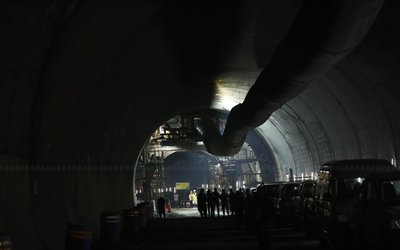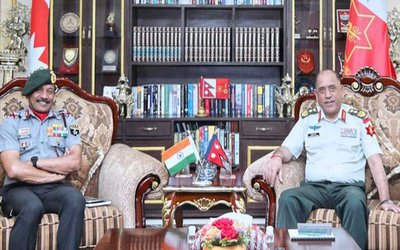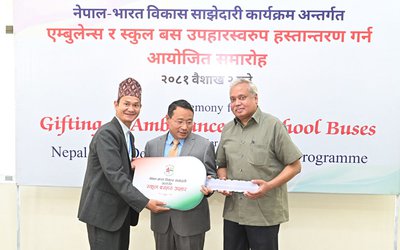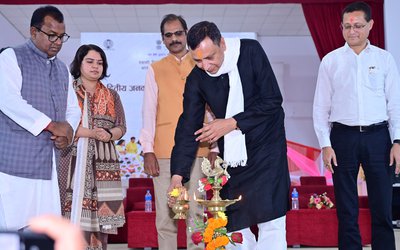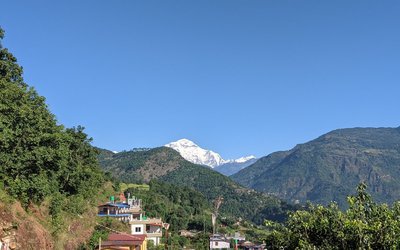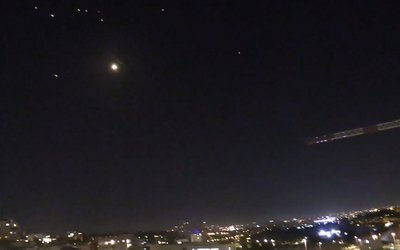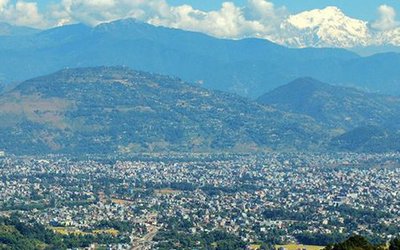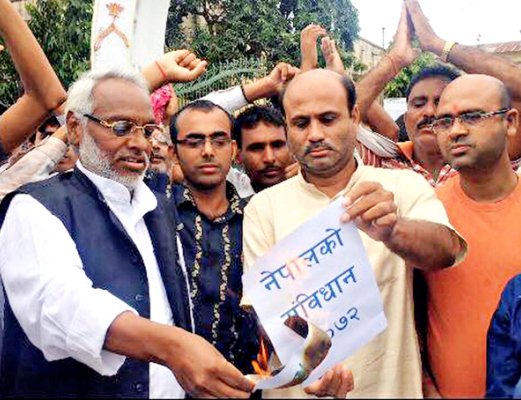
Although the three main political parties, Nepali Congress, CPN-UML and Nepal Communist Party-Maoist Center, along with some fringe parties, are celebrating September 20 as a historic day, which saw the promulgation of the new constitution, Madhesh-based and Janajati parties call it a black day.
United Madheshi Democratic Front, a group of eight political parties of Madhesh, Janajati and Tharu parties, have announced to a program to burn the copies of the constitution.
Led by veteran Congress leader PL Singh, a political group named Purano Shakti, which has been launching a nationwide agitation demanding the revival of the Constitution of Nepal 1990, has announced that it will burn the copies of the new constitution, too.
Promulgated with the support of over 90 percent members of the Constitutional Assembly, the new constitution is a legally strong document. However, it does not have the corresponding level of legitimacy as a large number of people are opposing it as a document enforced by three parties.
“This is an illegal document promulgated by an illegitimate body. We want the restoration of the 1990 Constitution,” said PL Singh, leader of Nepali Congress, who is leading the campaign in the name of Purano Shakti.
Madheshi, Janajati and women activists see the constitution as a discriminatory document. UMDF and Janajatis are demanding amendment to 52 articles of the constitution, including changes in the provincial boundaries, to make it acceptable.
“The constitution is acceptable only if the three parties agree to amend 52 articles. Otherwise, we will go for a struggle to scrap this constitution. It is up to the three so-called main parties to decide,” threatened UDMF leader Upendra Yadav. “This constitution needs a major surgery to make it functional.”
However, three main parties are pushing for the implementation of the constitution. “There is no need of amendment and what is needed is to implement it,” said CPN-UML leader KP Sharma Oli. “This is one of the best constitutions of the world.”
Citizenship Issue
One of the main objections in the constitution is the issue of citizenship. Women activists are saying that it has many discriminatory provisions denying the right of the mother.
Article 11(6) states that a foreign woman married to a Nepali citizen may acquire naturalized citizenship of Nepal as provided for in a federal law. Madhesi parties want acquisition of naturalized citizenship to be automatic on application.
A person, born in Nepal to a Nepali citizen mother, who has domicile in Nepal and whose father is not identified, shall be granted citizenship of Nepal by descent. However, in case his/her father is proved to be a foreign citizen the citizenship of such a person shall be converted into naturalized citizenship.
For the children born from the foreign mother, the citizenship clause says if a foreign woman married to a Nepali citizen so wishes, she may acquire naturalized citizenship of Nepal as provided for by the federal law. Notwithstanding anything contained elsewhere in this article, in case of a person born to a Nepali woman citizen married to a foreign citizen, who has permanent domicile in Nepal and has not acquired citizenship of a foreign country, he/she may acquire naturalized citizenship of Nepal.
Madheshi Demand
Following the promulgation of the new constitution, Madhesi, Muslims, dalits indigenous communities like Janajati, Tharu and women raised the question in 11-point demands. Madheshi and Janajati even blocked the border for almost five months.
They are set to continue their ongoing protests until the demands on citizenship provisions, delimitation of electoral constituencies and proportionate inclusion are met and the provincial boundaries are changed.
The 11-point demands include proportionate representation and delimitation of electoral constituencies based on the population, but the bill itself is unclear, vague and incomplete.
The UDMF has also urged the government to be serious about the 11-point demand. UDMF leaders met leaders of the Nepali Congress and discussed the present political crisis and its solution.
In Article 21 of the Interim Constitution, it was mentioned that various groups would have “the right to participate in state structures on the basis of principles of proportional inclusion.” In the new Constitution (Article 42), the word “proportional” has been dropped.
Article 283 of the Constitution states that only citizens by descent will be entitled to hold the posts of President, Vice-President, Prime Minister, Chief Justice, Speaker of Parliament, Chairperson of National Assembly, Head of Province, Chief Minister, Speaker of Provincial Assembly and Chief of Security Bodies. This clause is seen as discriminatory for the large number of Madhesis who have acquired citizenship by birth or naturalization.
Article 86 of the new Constitution states that National Assembly will comprise 8 members from each of 7 States and 3 nominated members. Madhesi parties want representation in National Assembly to be based on population of the Provinces.
Five disputed districts of Kanchanpur, Kailali, Sunsari, Jhapa and Morang, based on the majority of the population, or parts of them may be included in the neighboring Madhesh Provinces.
Article 154 of the Interim Constitution provided for delineation of electoral constituencies every 10 years. This has been increased to 20 years in Article 281 of the new Constitution. Echoing the Madhesi parties, India wants this restored to 10 years.
1. There should be delineation of autonomous provinces, including two autonomous provinces in Terai/Madhes region from Mechi to Mahakali, based on historical background and identity in accordance with the Interim Constitution-2007 article 138, 1 (a), past agreements with marginalized communities including Madhesi, Indigenous and Janajatis and reports prepared by the Committee on State Restructuring and Distribution of Powers formed through the first Constituent Assembly in 2008 and High Level State Commission on State Restructuring. The autonomous provinces with high power have to be guaranteed.
2.Under fundamental rights chapter, ensure a separate article with a clear provision of proportionate inclusion for the marginalized communities.
3. Guarantee proportionate inclusion in all the state organs, levels, agencies and service commissions, including federal and provincial structures.
4. Determination of population-based constituencies for the election of House of Representatives and mixed electoral system as provisioned in the interim constitution. Formation of National Assembly through single transferable electoral system from the votes of elected representatives of Provincial Assembly on the basis of population and compulsory representation from each province
5.For the marital citizenship, there should be a clear provision in the constitution itself, not in federal law, and their representation in the constitutional bodies has to be either through nomination or as per the provision of the interim constitution.
6. Restructuring of judiciary in accordance with fundamental norms of the federal state, and appointments in the Supreme Court, High Court and Local Court in accordance with proportionate inclusion. Appointments of judges in the high courts and local courts on the basis of provincial laws.
7. Execution of multilingual policies in all federal, provincial and local bodies.
8. Formation of Inclusion Commission with representatives from all the communities and all other commissions with their clear jurisdictions. Also, ensure the provision of representation from each province in the natural resources and financial commissions.
9. Formation of local bodies and special structures as per the provincial laws.
10. Democratization of the Nepal Army, giving it a national shape, and guarantee of proportionate inclusion in all security agencies including Nepal Army.
11. Nepal should be defined as a multi-national state and not as a monolithic national state.

Keshab Poudel
Poudel is the editor of New Spotlight Magazine.
- ECONOMY: Growth At 3.3
- Apr 16, 2024
- DPM’s SHRESTHA’S CHINA VISIT High Profile, Low Key
- Apr 14, 2024
- Maha Kumbha In Barahkshetra: A Sacred Festival In Sacred Koshi (Kaushiki) River
- Apr 09, 2024
- LOSS AND DAMAGE: Upper Tamakoshi A Case
- Apr 02, 2024
- Helvetas-Nepal’s InElam Promoting Herbal Oil In Sarlahi
- Mar 31, 2024

